It is a sinister organised crime group whose bloodthirsty henchmen routinely engage in drug smuggling, human trafficking, kidnapping, extortion, rape and murder.
Bizarrely, the ultra violent Black Axe gang, whose secret rituals have seen it compared with a cult, started out as a university fraternity in Nigeria in the 1970s and where new members are forcibly recruited, while many volunteer.
Recruits, often male university undergraduates aged between 16 and 23, undergo a secret initiation ceremony that involves physical and psychological trauma including being stripped naked, tortured and having to take part in a blood drinking ritual, after which they are ‘reborn’ as an ‘Aye Axeman’.
Now the mafia-style organisation’s sophisticated international cybercrime network has turned it into a global threat – and shattered the lives of thousands of Britons who have been fleeced of their life savings.
The enterprise has an estimated 30,000 members operating in cells in dozens of countries around the world.
According to Pentagon analysts in the US, victims are conned out of in excess of $5billion (£3.8billion) every year through a range of elaborate online stings including romance and inheritance scams along with ransomware and phishing attacks.
Now law-enforcement agencies have warned that young people in Britain and Ireland are among thousands across Europe falling into the clutches of the gang after being recruited through Snapchat.
Graduates and young professionals have been targeted along with teenagers after being lured in by the ruthless criminals to often unwittingly take part in money laundering and data stealing operations.
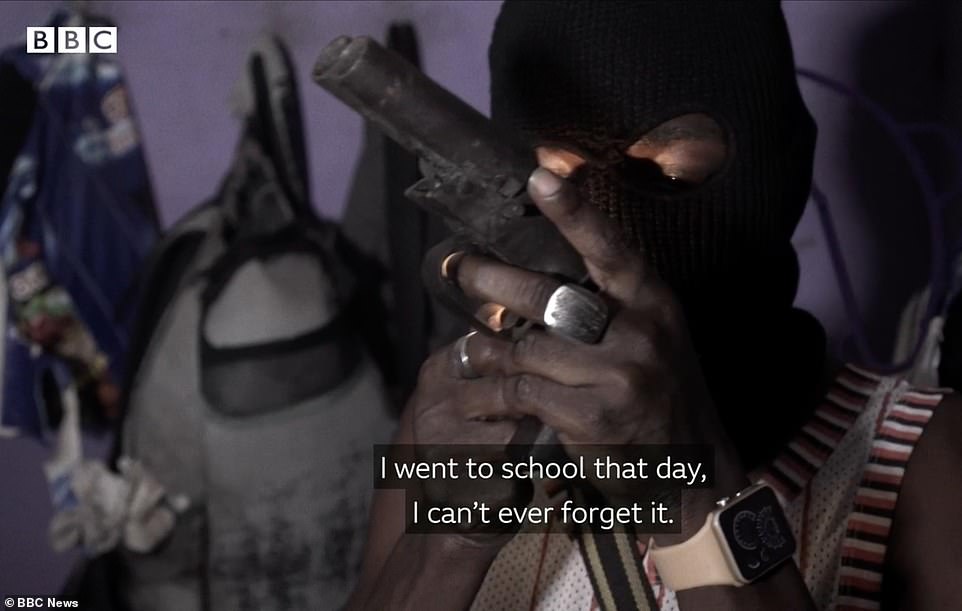
It is a sinister organised crime group whose bloodthirsty henchmen (pictured) routinely engage in drug smuggling, human trafficking, kidnapping, extortion, rape and murder

Bizarrely, the ultra violent Black Axe gang (pictured), whose secret rituals have seen it compared with a cult, started out as a university fraternity in Nigeria in the 1970s

Last October bank worker Funmi Abimbola (pictured), 26, was jailed for three years after he was identified as a facilitator for the gang
Some recruits, including students, who are struggling with debts are seen as easy targets after being offered the chance of making a quick buck by the gang while others are blackmailed into acting as money mules after the criminals obtain compromising images of them.
Others include young professionals who work for banking institutions or major organisations with access to sensitive and potentially lucrative data.
Snapchat is the preferred social media platform used by the gang as messages disappear quickly meaning they are less likely to be discovered.
This week it was reported recruiters have drawn up simple registration forms sent to mules to fill in bank details and other information once they have agreed to allow their accounts to be used to move fraudulent money.
Detectives investigating the gang have reportedly found images of completed Snapchat-based forms on mobile phones which have been seized from suspects.
Senior detectives probing the gang have told how many recruiters known as ‘herders’ have successful jobs, often in the IT industry.
Describing how the racket works, Detective Superintendent Michael Cryan, of the Garda Economic Crime Bureau in Ireland, said: ‘Most of the mules are recruited on social media, messages going round Snapchat about a chance to make easy money.’
But he added last month: ‘Individuals need to realise that if they act as a money mule, they are interacting with vicious transnational organised criminals.

Now the mafia-style organisation’s sophisticated international cybercrime network has turned it into a global threat. Pictured: Interpol helping target the Black Axe gang
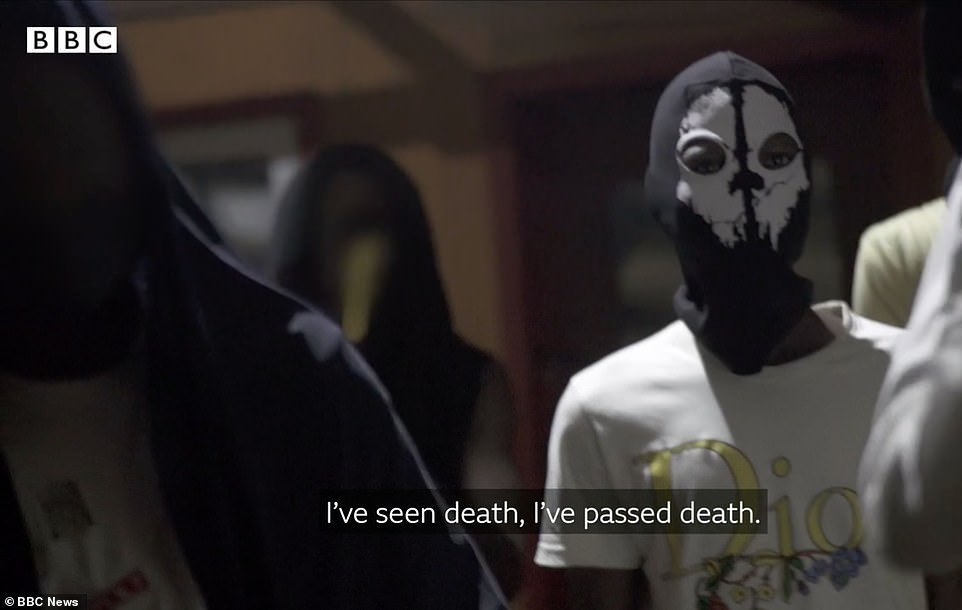
Some recruits, including students, who are struggling with debts are seen as easy targets. Pictured: The Black Axe gang
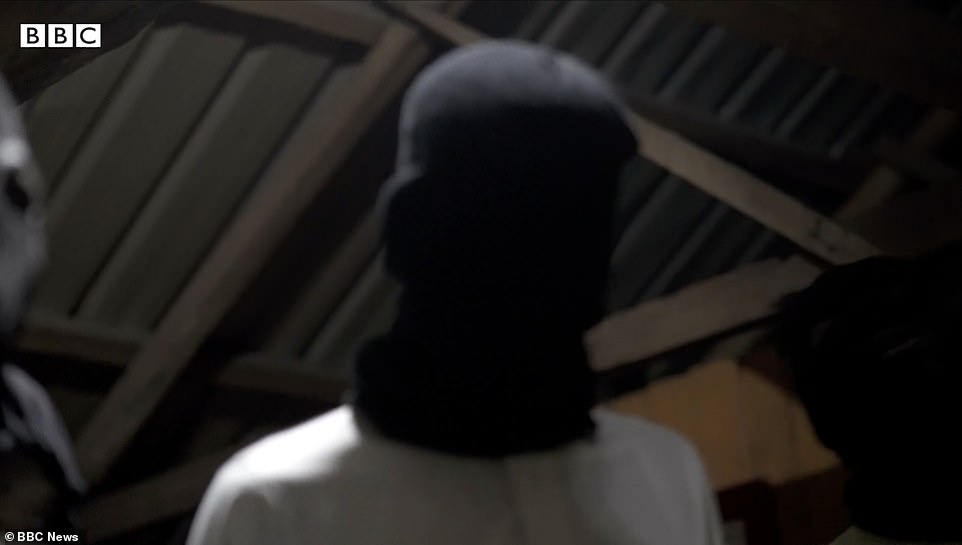
Others include young professionals who work for banking institutions or major organisations with access to sensitive and potentially lucrative data. Pictured: The gang
‘You owe them and they control you. If the money is frozen by the bank, they have been known to demand that you pay up yourself like drug dealers.
‘The money mules have no idea what their account will be used for, how much or where it was stolen. If stolen in the USA, they may look to extradite you there to charge you and sentencing is very harsh there.
‘They also need to realise that they are helping organised crime gangs who traffic humans, who run brothels, as well as funding their lavish lifestyles.
‘People who get involved in this are destroying their own futures because they could go to jail, end up with a criminal record and be prevented from getting jobs.’
And, almost certainly, few could imagine they were being lured into a criminal world that is helping to enrich the lifestyles of its ruthless leaders back in West Africa.
Police in Ireland scored a major success against the gang in 2020 when a series of raids saw the arrest of a handful of Black Axe members.
The seizing of just one phone in the operation would go on to expose a far wider network stretching across the globe.
Officers had been called in by European law enforcement agency Europol after a company in the Dutch port of Rotterdam had been swindled out of £1 million in a scam known as business email compromise (BEC).
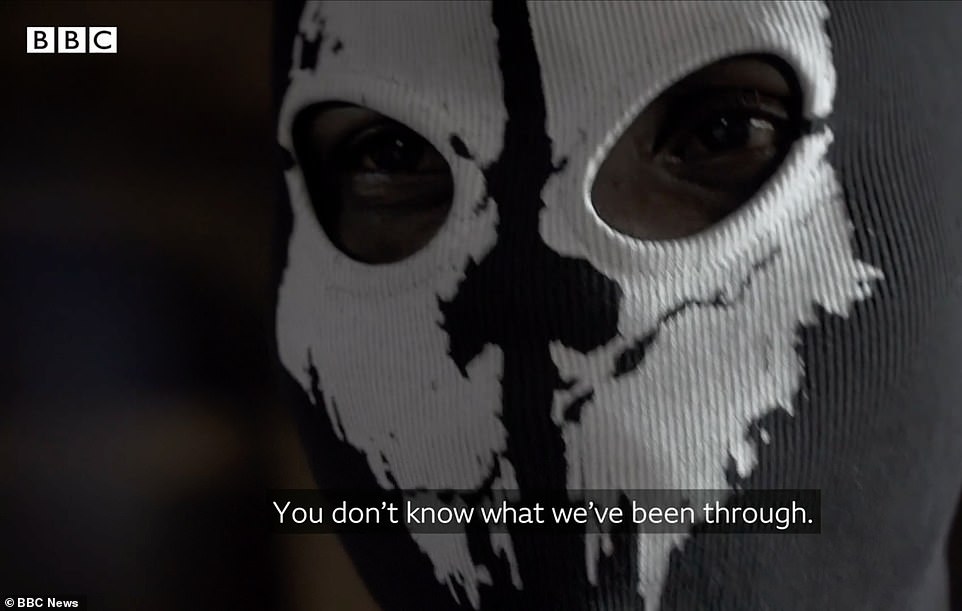
Police in Ireland scored a major success against the gang (pictured) in 2020 when a series of raids saw the arrest of a handful of Black Axe members
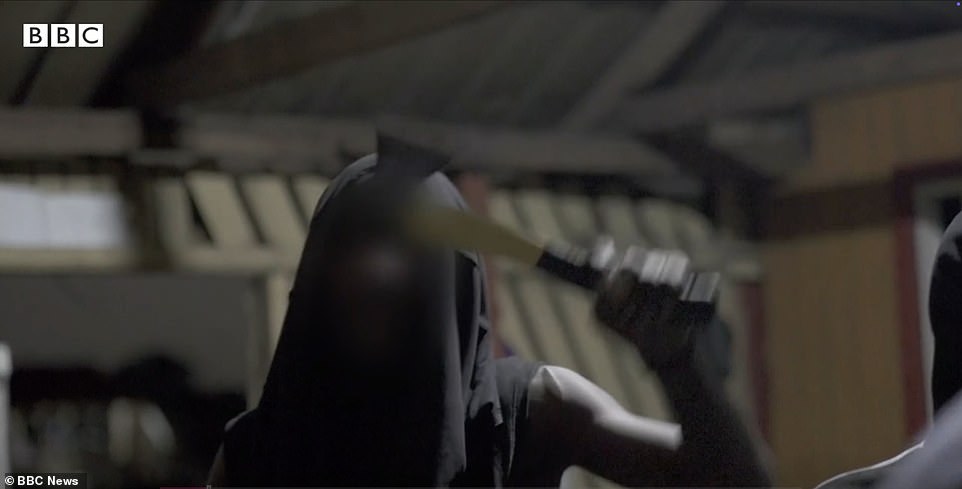
The seizing of just one phone in the operation would go on to expose a far wider network stretching across the globe. Pictured: The gang
In the scam, fraudsters sent emails to businesses pretending to be from a supplier saying their account details have changed, before asking for the money to be sent to a new account.
In this case, the company was sent a forged email from a mobile phone that was traced to an apartment in north Dublin.
Detectives armed with a warrant swooped on the apartment which was home to a Nigerian graduate in his 20s who had a degree in computer science and was unknown to the police.
His phone held details of a vast network of money launderers and international scams that had been carried out globally and led to the identification of hundreds of suspects around the world.
Police were also able to put out of action a gang of 12 Italians working for the gang who had travelled to Ireland over a number of weeks to open multiple bank accounts used for money laundering.
The trail led to Giuseppe Divicarro, a fashion photographer in his 40s living in north Dublin.
His phone contained links to bank accounts opened by some of the 12 Italian nationals along with a fake electricity bill for a bogus address which had been used by the gang members.
Divicarro – who was jailed for three-and-a-half years for gangland and money laundering offences in 2021 – had also used the same fake bill to open multiple bank accounts in his own name for money laundering.
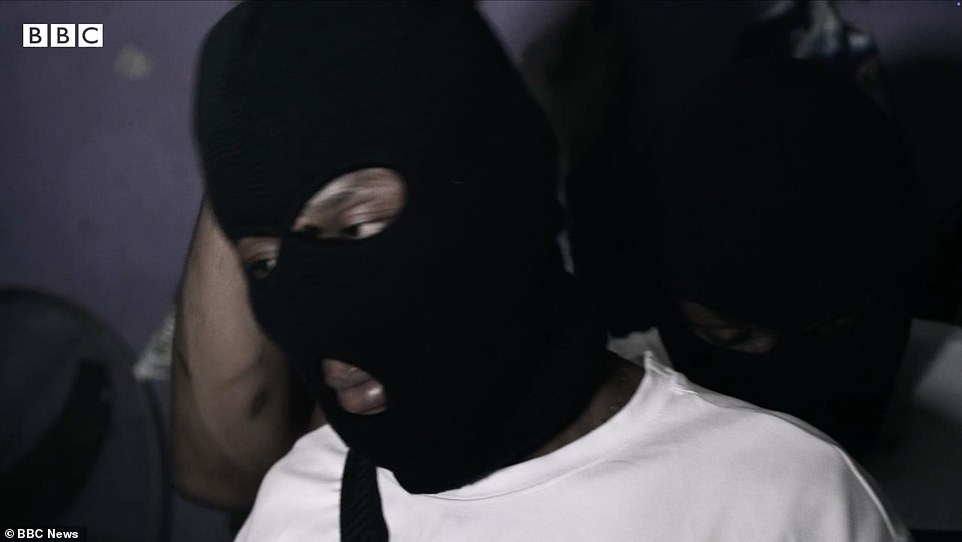
Operation Skein – which was set up to target the criminal organisation (pictured) in Ireland – has identified more than 1,400 people who have connections to the wider criminal organisation in a variety of roles
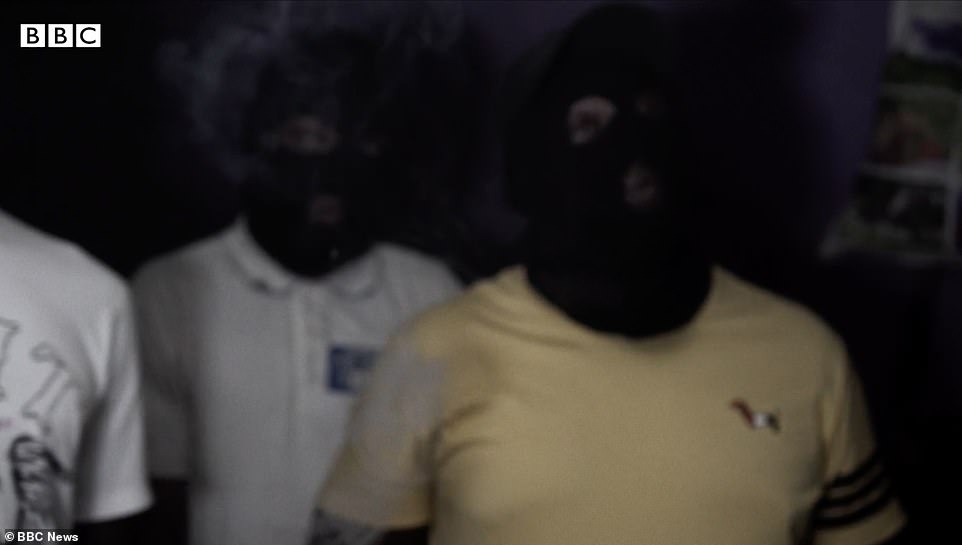
More than 565 people have been arrested in connection with suspected money laundering and organised crime offences including more than 50 senior gang members. Pictured: The gang
He claimed he was a gambling addict who had been lured into the criminal enterprise to pay off his debts.
Since then Operation Skein – which was set up to target the criminal organisation in Ireland – has identified more than 1,400 people who have connections to the wider criminal organisation in a variety of roles.
More than 565 people have been arrested in connection with suspected money laundering and organised crime offences including more than 50 senior gang members.
Around 300 people have been prosecuted and 39 juveniles given cautions.
At least 1,000 have been identified as money mules – typically students recruited on forums such as Snapchat.
Others, including professionals in high-end jobs with financial institutions and corporations, were found to have links to Irish-based members of the crime network.
A computer expert employed by one of the country’s leading accountancy firms was one of several people employed in the financial or tech sector who came under suspicion during the probe.
Another was said to be a healthcare worker suspected of stealing an employee database from a nursing home while another was the girlfriend of a suspected Black Axe facilitator who worked in a call centre for a financial institution.
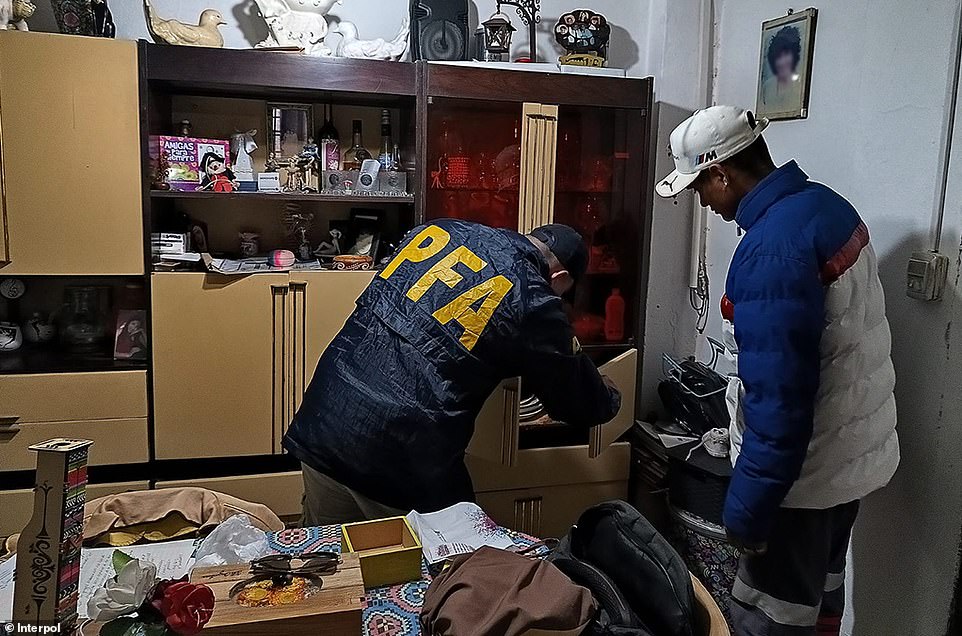
Around 300 people have been prosecuted and 39 juveniles given cautions. Pictured: Police investigating the Black Axe gang
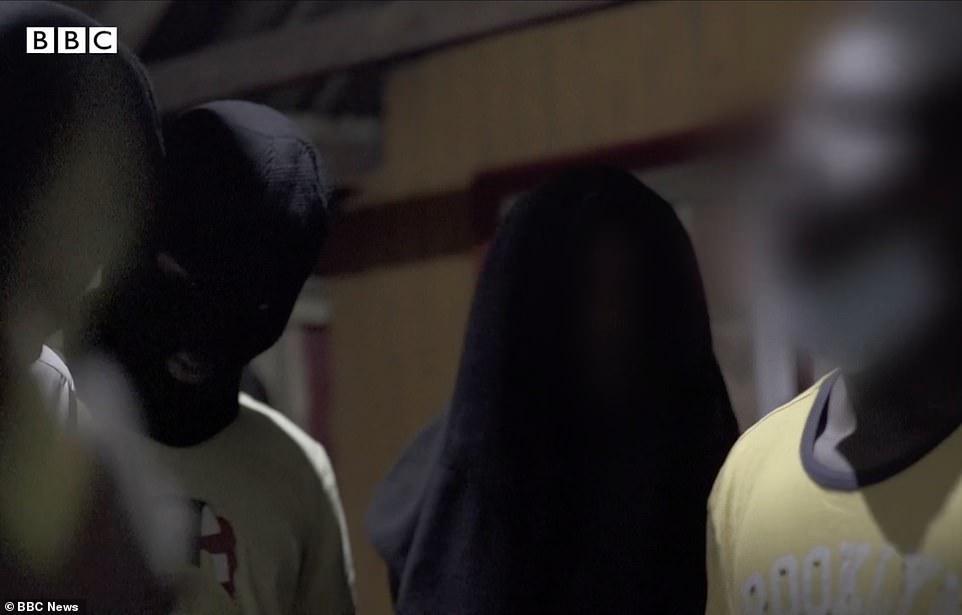
At least 1,000 have been identified as money mules – typically students recruited on forums such as Snapchat. Pictured: The gang
The log-in details for the banking system and other access information were alleged to have been printed out and stuck up on the wall of her bedroom.
Last October bank worker Funmi Abimbola, 26, was jailed for three years after he was identified as a facilitator for the gang.
He was working in human resources at the Bank of Ireland when he helped to launder hundreds of thousands of euros through Irish accounts over a period spanning nearly three years.
Abimbola, of Dublin, was said to be ‘academically gifted’ with two degrees including a master’s, and no prior convictions.
He had tried to escape justice after fleeing to the UK before being tried after he was extradited.
Irish police operations also uncovered how cryptocurrency – which can be sent rapidly between digital wallets around the world – had become an integral element in Black Axe’s money-laundering operations and the methods they were using.
The raids also provided vital information for a global law enforcement operation which targeted the criminal network in a series of coordinated covert operations last year.
The mission – codenamed Operation Jackal III – led to the arrest of 300 people in 21 countries including Britain and Ireland where police forces, financial intelligence units and asset recovery offices were mobilised along with private sector partners.
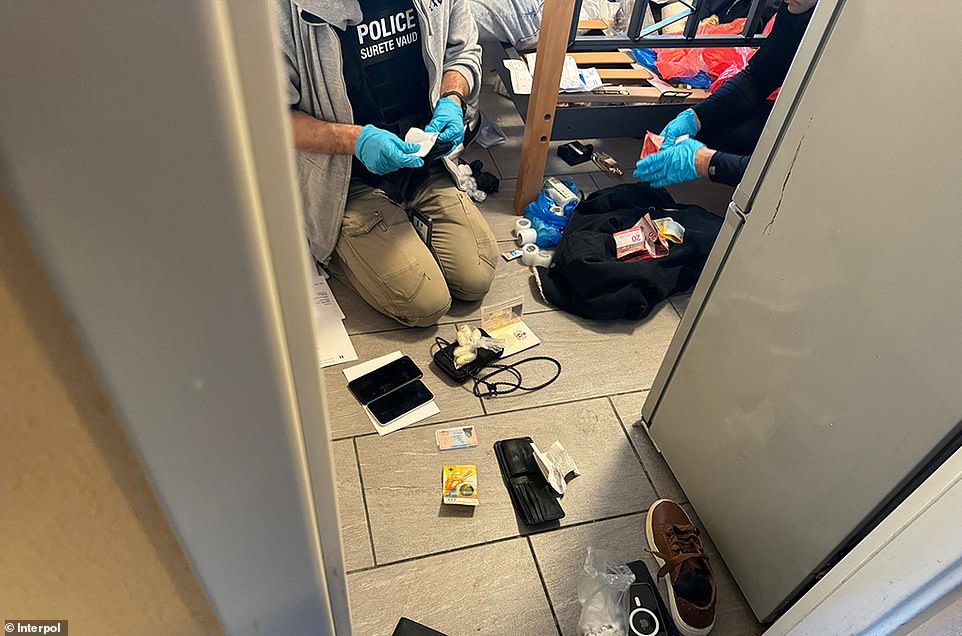
Irish police operations also uncovered how cryptocurrency – which can be sent rapidly between digital wallets around the world – had become an integral element in Black Axe’s money-laundering operations. Pictured: Police investigating the gang
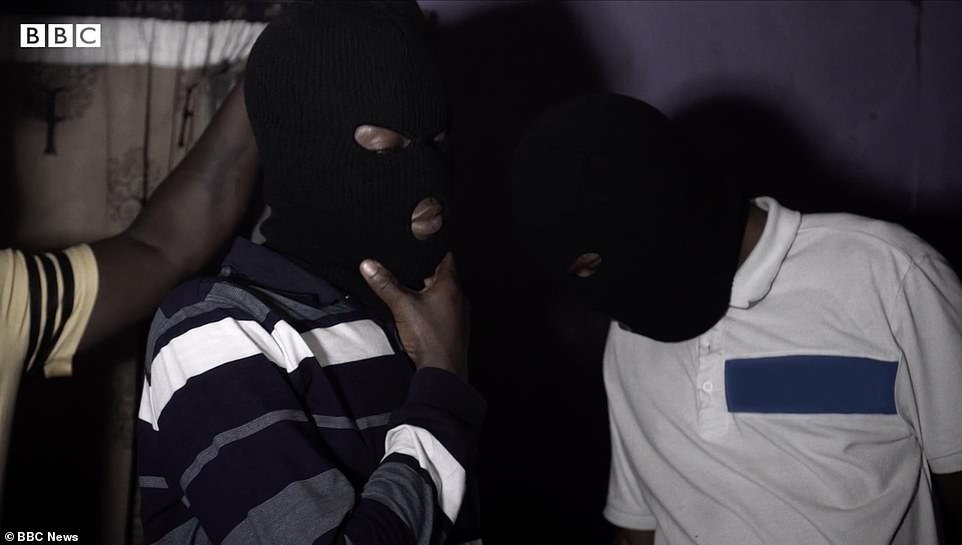
The raids also provided vital information for a global law enforcement operation which targeted the criminal network (pictured) in a series of coordinated covert operations last year
The raids saw $3million (£2.24million) in assets, including cryptocurrencies and luxury items, being seized while more than 700 bank accounts were frozen.
Data from seized computers and phones revealed large transfers to Nigerian bank accounts, cryptocurrency transactions, and sophisticated money laundering operations.
Interpol, which coordinated the operation, said the raids had come as a ‘major blow’ to the criminal network.
Isaac Oginni, director of Interpol’s Financial Crime and Anti-Corruption Centre, said after the operation: ‘The volume of financial fraud stemming from West Africa is alarming and increasing.
‘This operation’s results underscore the critical need for international law enforcement collaboration to combat these extensive criminal networks.’
A major success in the UK came in 2019 when three members of the same family who were working directly for the alleged leader of the notorious crime network were jailed for a total of more than 16 years after laundering nearly £1 million for the syndicate.
Okemiorukaye Nakpodia, 62, was jailed for six and a half years, Esther Nakpodia, 41, for two and a half years and Unuakpotovo Nakpodia, 52, to seven years, seven months.
The siblings, from Greenwich, south east London, operated telephone and email scams between 2007 and 2015 on behalf of their Nigeria-based brother-in-law Augustus Bemigho-Eyeoyibo.
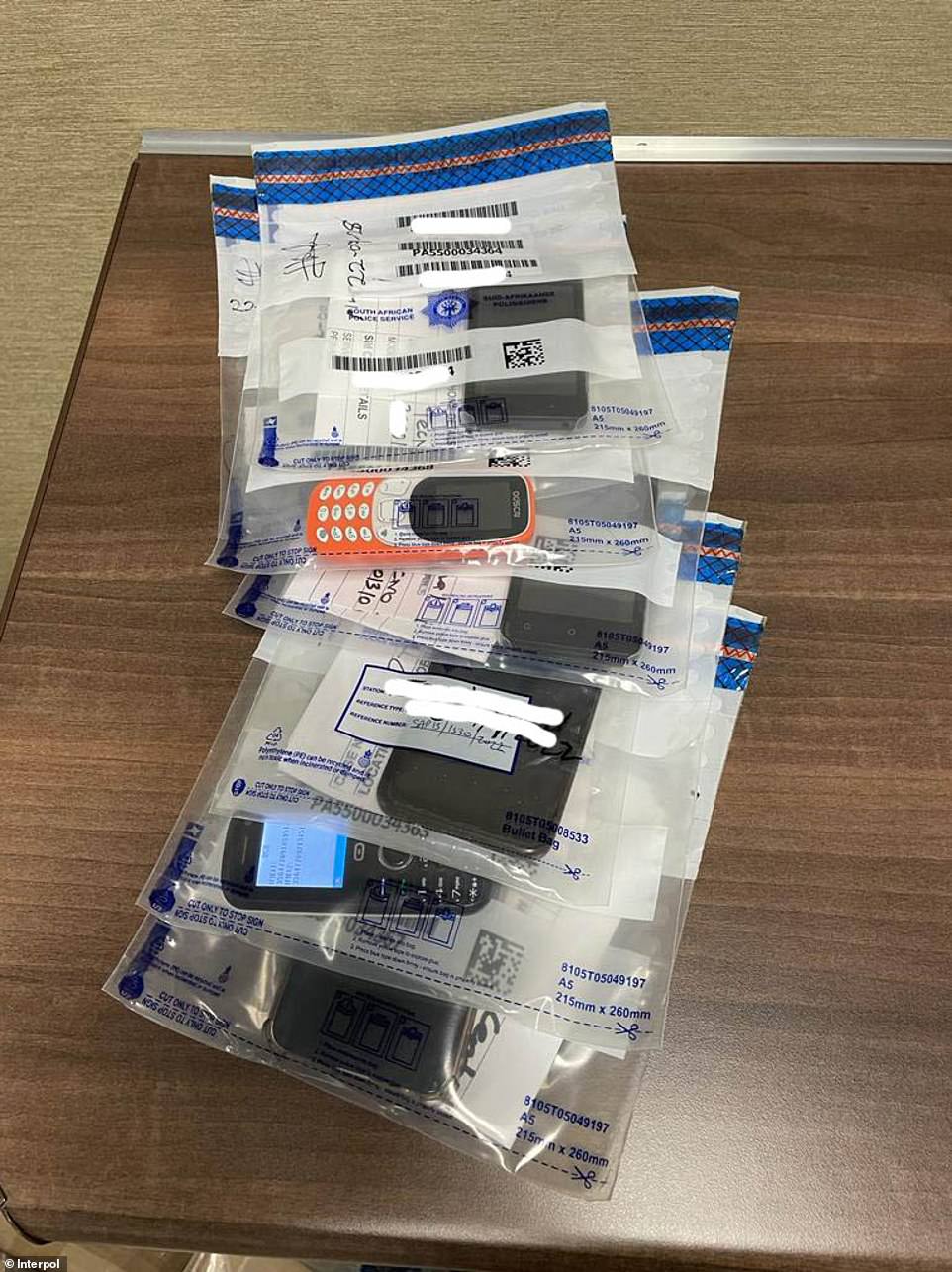
While leaders claim Black Axe is a rogue breakaway group, international law enforcement agencies describe it as the ‘criminal wing’ of the NBM and evidence shows its illicit funds are funnelled into the group. Pictured: Items seized during Black Gang investigations
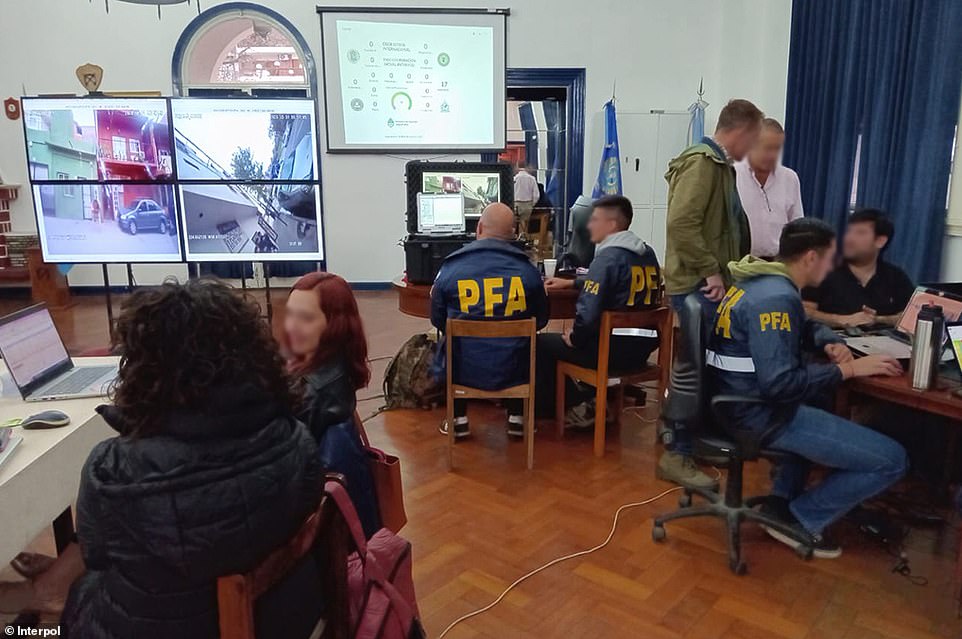
Former confederates of the criminal enterprise, based in the Benin City in southern Nigeria, say corruption and collusion with local authorities has allowed it to thrive. Pictured: Police investigations into the Black Axe
Despite being named by prosecutors as its leader, Bemigho-Eyeoyibo, who has run for political office in Nigeria, has insisted the organisation he led for four years called the Neo Black Movement of Africa (NBM) is a legitimate concern.
While leaders claim Black Axe is a rogue breakaway group, international law enforcement agencies describe it as the ‘criminal wing’ of the NBM and evidence shows its illicit funds are funnelled into the group.
Former confederates of the criminal enterprise, based in the Benin City in southern Nigeria, say corruption and collusion with local authorities has allowed it to thrive with members from the police and military often acting as recruiters.
According to a BBC probe into the gang, evidence of extreme violence including mutilated dead bodies showing signs of torture regular surface on social media in Nigeria.
The violence and brutality of gang members – known as Axemen – is rooted in its domestic drug dealing, prostitution and extortion rackets and territorial competition with rival gangs.
International crackdowns have enabled Interpol to create a huge intelligence database on the gang, which is now shared with officers throughout its 196 member countries.
But officials warned the gang’s expertise along with technological innovations enabled it to switch tactics and develop new scams while international reach meant the organisation remained an ongoing threat.
Experts said innovations in money-transfer software and cryptocurrency have played into the hands of the group.
One senior Interpol official said: ‘These criminal syndicates are early adopters of new technologies. A lot of fintech developments make it really easy to illegally move money around the world.’











